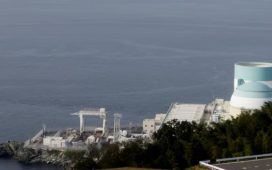China has accused Australia of attempting to sabotage its relationships in the Pacific, saying Australia has a “cold war mentality” and is blinded by “ideological prejudice”.
Senior Chinese diplomats said Australia has undermined Beijing’s security and law enforcement cooperation with Fiji, alleging its relations with Fiji are being “targeted” by Australia, the US and New Zealand.
Fiji’s prime minister, Sitiveni Rabuka, came to power in December – after 15 years of rule by Frank Bainimarama – promising to scrap a 2011 police cooperation agreement which Fiji signed with China under Bainimarama.
Rabuka announced Chinese state security personnel would no longer be allowed to work in Fiji because “our system of democracy and justice systems are different”. He said Fiji would “go back to those [countries] that have similar systems with us”.
Relations between Beijing and Suva have also been cooled by Rabuka’s reversal of an earlier decision to downgrade the status of Taiwan’s diplomatic mission in Fiji – and allowing the mission to revert to using the name Republic of China (Taiwan). Rabuka also controversially skipped a planned meeting with the Chinese vice-minister of foreign affairs, Ma Zhaoxu, last month, citing family obligations.
China’s special envoy for Pacific island countries, Qian Bo, told the Samoa Observer the relationship between China and Fiji did not seek to undermine or usurp Fiji’s other relationships.
“We are not targeting the US,” Qian said. “We have never done so. We never targeted our relationship with Australia and New Zealand. And likewise, our relationship should not be interrupted or affected by other parties.
“We have explained to Fiji and to other nations in the region … police to police cooperation, so what? The US has police cooperation in the region. Australia and New Zealand have people working in the headquarters in the region.”
He said the US, Australia and New Zealand were driving up geopolitical tensions in the region, and urged greater engagement and “a better understanding”.
“Those countries have a cold war mentality.”
Without mentioning any specific countries, China’s embassy in Suva issued a pointed statement accusing other nations of attempting to disrupt its relationship with Fiji.
The embassy said it hoped “relevant parties can abandon ideological prejudice, and view the law enforcement and police cooperation between China and Fiji objectively and rationally”.
“China’s cooperation with Fiji is open and transparent, doesn’t target any country, nor shouldn’t be disrupted by any country,” it said.
after newsletter promotion
“The Chinese side sincerely hope relevant countries [will] make more contributions through concrete actions for Fiji and the Pacific island countries (PICs), rather than only caring and helping the PICs out of geopolitical needs.”
On the “Taiwan question”, the embassy repeated Beijing’s oft-declared position: “There is only one China in the world. Taiwan has never been a country, but an inalienable part of China’s territory.”
Fiji still formally recognises China over Taiwan. It was the first Pacific island nation to establish diplomatic relations with the People’s Republic.
In application, there is confusion over Rabuka’s commitment to end law enforcement cooperation with China.
Asked last week about the deal, Fiji’s home affairs minister, Pio Tikoduadua – whose portfolio includes the country’s defence forces and police – said the agreement had not been terminated, only that it was under “review”. Any abandonment of the decade-old deal requires six months’ notice from either side.
“There is no termination of the agreement,” Tikoduadua told reporters in Suva.
“We want to review the terms that govern the relationship between the government of China and Fiji with regards to security. That’s what we’re doing.”
Australia’s Department of Foreign Affairs and Trade was contacted for comment.













